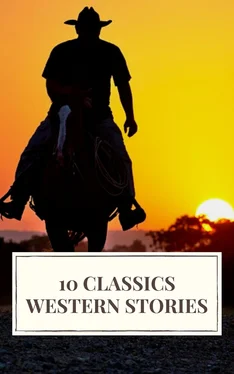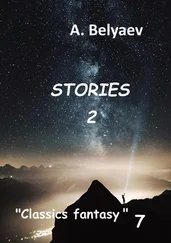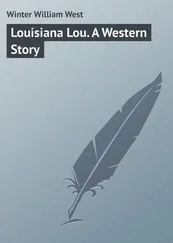“You have frightened away my swans,” said Wallulah, looking up at him smilingly.
A shadow crossed his brow.
“Wallulah,” he said, and his voice had now the stern ring habitual to it, “you waste your life with the birds and trees and that thing of sweet sounds,”—pointing to the flute. “Better be learning to think on the things a war-chief’s daughter should care for,—the feast and the council, the war-parties and the welcome to the braves when they come back to the camp with the spoil.”
The bright look died out of her face.
“You say those words so often,” she replied sorrowfully, “and I try to obey, but cannot. War is terrible to me.”
His countenance grew harsher, his hand ceased to stroke her hair.
“And has Multnomah, chief of the Willamettes and war-chief of the Wauna, lived to hear his daughter say that war is terrible to her? Have you nothing of your father in you? Remember the tales of the brave women of Multnomah’s race,—the women whose blood is in your veins. Remember that they spoke burning words in the council, and went forth with the men to battle, and came back with their own garments stained with blood. You shudder! Is it at the thought of blood?”
The old wistful look came back, the old sadness was on the beautiful face again. One could see now why it was there.
“My father,” she said sorrowfully, “Wallulah has tried to love those things, but she cannot. She cannot change the heart the Great Spirit has given her. She cannot bring herself to be a woman of battle any more than she can sound a war-cry on her flute,” and she lifted it as she spoke.
He took it into his own hands.
“It is this,” he said, breaking down the sensitive girl in the same despotic way in which he bent the wills of warriors; “it is this that makes you weak. Is it a charm that draws the life from your heart? If so, it can be broken.”
Another moment and the flute would have been broken in his ruthless hands and its fragments flung into the lake; but Wallulah, startled, caught it from him with a plaintive cry.
“It was my mother’s. If you break it you will break my heart!”
The chief’s angry features quivered at the mention of her mother, and he instantly released the flute. Wallulah clasped it to her bosom as if it represented in some way the mother she had lost, and her eyes filled with tears. Again her father’s hand rested on her head, and she knew that he too was thinking of her mother. Her nature rose up in revolt against the Indian custom which forbade talking of the dead. Oh, if she might only talk with her father about her mother, though it were but a few brief words! Never since her mother’s death had her name been mentioned between them. She lifted her eyes, pathetic with three years’ hunger, to his. As their glances met, it seemed as if the veil that had been between their diverse natures was for a moment lifted, and they understood each other better than they ever had before. While his look imposed silence and sealed her lips as with a spoken command, there was a gleam of tenderness in it that said, “I understand, I too remember; but it must not be spoken.”
There came to her a sense of getting closer to her father’s heart, even while his eyes held her back and bade her be silent.
At length the chief spoke, this time very gently.
“Now I shall talk to you not as to a girl but as to a woman. You are Multnomah’s only child. When he dies there will be no one but you to take his place. Are your shoulders strong enough to bear the weight of power, the weight that crushes men? Can you break down revolt and read the hearts of plotters,—yes, and detect conspiracy when it is but a whisper in the air? Can you sway council and battle to your will as the warrior bends his bow? No; it takes men, men strong of heart, to rule the races of the Wauna. Therefore there is but one way left me whereby the line of Multnomah may still be head of the confederacy when he is gone. I must wed you to a great warrior who can take my place when I am dead and shelter you with his strength. Then the name and the power of Multnomah will still live among the tribes, though Multnomah himself be crumbled into dust.”
She made no reply, but sat looking confused and pained, by no means elated at the future he had described.
“Have you never thought of this,—that some time I must give you to a warrior?”
Her head drooped lower and her cheek faintly flushed.
“Sometimes.”
“But you have chosen no one?”
“I do not know,” she faltered.
Her father’s hand still rested on her head, but there was an expression on his face that showed he would not hesitate to sacrifice her happiness to his ambition.
“You have chosen, then? Is he a chief? No, I will not ask that; the daughter of Multnomah could love no one but a chief. I have already selected a husband for you. Tear this other love from your heart and cast it aside.”
The flush died out of her cheek, leaving it cold and ashen; and her fingers worked nervously with the flute in her lap.
He continued coldly,—
“The fame of your beauty has gone out through all the land. The chief of the Chopponish [2]has offered many horses for you, and the chief of the Spokanes, our ancient foes, has said there would be peace between us if I gave you to him. But I have promised you to another. Your marriage to him will knit the bravest tribe of the confederacy to us; he will take my place when I am dead, and our people will still be strong.”
She made no reply. What could she do against her father’s granite will? All the grace and mobility were gone from her face, and it was drooping and dull almost to impassiveness. She was only an Indian girl now, waiting to learn the name of him who was to be her master.
“What is the name of the one you love? Speak it once, then never speak it again.”
“Snoqualmie, chief of the Cayuses,” faltered her tremulous lips.
A quick change of expression came into the gaze that was bent on her.
“Now lift your head and meet your fate like the daughter of a chief. Do not let me see your face change while I tell you whom I have chosen.”
She lifted her face in a tumult of fear and dread, and her eyes fastened pathetically on the chief.
“His name is—” she clasped her hands and her whole soul went out to her father in the mute supplication of her gaze—“the chief Snoqualmie, him of whom you have thought.”
Her face was bewilderment itself for an instant; the next, the sudden light, the quick flash of expression which transfigured it in a moment of joy or surprise, came to her, and she raised his hand and kissed it. Was that all? Remember she had in her the deep, mute Indian nature that meets joy or anguish alike in silence. She had early learned to repress and control her emotions. Perhaps that was why she was so sad and brooding now.
“Where have you seen Snoqualmie?” asked Multnomah. “Not in your father’s lodge, surely, for when strange chiefs came to him you always fled like a frightened bird.”
“Once only have I seen him,” she replied, flushing and confused. “He had come here alone to tell you that some of the tribes were plotting against you. I saw him as he went back through the wood to the place where his canoe was drawn up on the bank of the river. He was tall; his black hair fell below his shoulders; and his look was very proud and strong. His back was to the setting sun, and it shone around him robing him with fire, and I thought he looked like the Indian sun-god.”
“I am glad it is pleasant for you to obey me. Now, listen while I tell you what you must do as the wife of Snoqualmie.”
Stilling the sweet tumult in her breast, she tried hard to listen while he told her of the plans, the treaties, the friendships, and the enmities she must urge on her husband, when he became war-chief and was carrying on her father’s work; and in part she understood, for her imagination was captivated by the splendid though barbarian dream of empire he set before her.
Читать дальше












